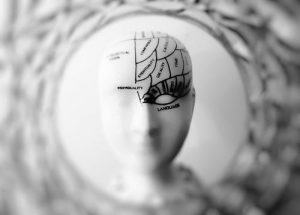 With so much focus on diet and exercise helping the heart, brain health may take a back seat in the wellness arena. However, the brain is the control center of the body, and in turn must not be neglected. During the month of June, it’s especially important to be aware of the brain disease known as Alzheimer’s. You may have heard of it before, but may not know what it entails. Let’s learn more about this disease and how you can be an advocate for this devastating brain health condition.
With so much focus on diet and exercise helping the heart, brain health may take a back seat in the wellness arena. However, the brain is the control center of the body, and in turn must not be neglected. During the month of June, it’s especially important to be aware of the brain disease known as Alzheimer’s. You may have heard of it before, but may not know what it entails. Let’s learn more about this disease and how you can be an advocate for this devastating brain health condition.
Alzheimer’s basics
Alzheimer’s disease (AD) is a progressive and irreversible brain health condition that slowly destroys memory and thinking skills. Although some memory loss may be a normal part of aging, the severity of symptoms in Alzheimer’s is not a normal part of aging. More than 5 million people in the United States suffer from this type of dementia. And along with this number, there are countless other people, including loved ones and caregivers, that have to live everyday watching those they care about suffer from this disease.
Causes of Alzheimer’s include plaques and tangles in the brain. These plaques form from abnormal deposits of protein in the brain. Also, the damage caused by these deposits typically start in the hippocampus and entorhinal complex of the brain. And its these parts of the brain that are vital in forming memories. Over time, more neurons die and other parts of the brain begin to shrink.
It is not fully understood why certain people may be more at risk for this disease. However, it’s thought that less than 1-percent is from genetic changes, while for most people it is likely a combination of genetic, lifestyle, and environmental factors.
Early symptoms of Alzheimer’s
The early symptoms of this disease may be things as simple as forgetting recent events or conversations. These memory problems are one of the first signs of Alzheimer’s disease. However, other red flags of the disease may include:
- repeating statements over and over again
- forgetting appointments and events and not remembering them later
- frequently losing things
- getting lost in familiar places
- forgetting the names of family members and everyday objects
- having trouble thinking of words to describe common objects or hold a simple conversation
If you, your family member ,or someone you know exhibits any of these symptoms, it may be time to visit the doctor. This is because a complete physical exam, detailed neurological exam, and mental status exam can help diagnose Alzheimer’s or whatever other condition may be causing symptoms.
Later symptoms of Alzheimer’s disease
In the later stages of the disease, you may start to see some of the following symptoms:
- inability to learn new things
- trouble with simple activities of daily living like bathing, dressing, and eating.
- Hallucinations
- Paranoia
- Impulsive behavior
Alzheimer’s research
Recent research shows that there are currently not many treatments for AD. One medicine is a cholinesterase inhibitor. This medicine is for those with mild, moderate, or severe AD. This medicine is also give to those with Parkinson’s dementia. Memantine is another medicine that is approved in use for those with moderate and severe AD who show difficulty in attention and alertness.
Besides such treatments, research shows an independent link between vitamin D deficiency and AD. Therefore, those with symptoms should have their vitamin D levels tested for this vitamin.
Another nutrition-related link with AD has to do with omega-3 fatty acids. This is because research shows the heart health of individuals correlates with brain health. In fact, recent reviews show that those who eat a heart healthy diet based on the Mediterranean diet have a lower risk of cognitive decline compared to those on other eating regimens.
Future research
Future research of Alzheimer’s has to do with targeting the plaques and tangles in the brain. However, researchers cannot yet seem to agree on what abnormality has the most impact on cognitive decline. That is why it’s important now to support research efforts that will help find more effective treatment for this terrifying condition.
How you can support research
Be sure to visit the Alzheimer’s Association website for more ideas on ways you can help support Alzheimer’s research. Also, hashtag #endalz in your social media posts this month to show your support in Alzheimer’s disease awareness.
How you can keep your brain healthy
As mentioned before, some research is showing that lifestyle changes like diet may help brain health. Read below for specific things you can do to help keep your brain healthy.
- Exercise your brain with puzzles and word games: This is thought to keep building connections between nerve cells and may even help generate new brain cells.
- Exercise your body: Walking, jogging, swimming, and dancing, to name a few can help keep your heart and brain strong. Not only can it help create new nerve cell connections, but can improve blood pressure and cholesterol that can also help brain health.
- Improve your numbers: Help keep your blood glucose, cholesterol, and blood pressure in healthy ranges by eating healthier. This means more plant-based foods in the diet like fruits, vegetables, and healthy fats. Healthy fats can include olive oil, avocado, nuts, seeds, and olives, to name a few.
- Avoid tobacco and limit alcohol: Smoking can constrict blood vessels and increase heart health risk, while excessive alcohol intake is a major risk factor for dementia. Therefore visit your healthcare provider or websites like SAMHSA.gov to help you quit smoking and abusing alcohol.
- Reduce stress and increase social support: Those with a lower risk of dementia also have strong social ties. Also, people who are anxious or with depression tend to score lower on cognitive function tests. Therefore, be sure to keep a support system around you of friends, neighbors, loved ones, and healthcare providers to keep your brain healthy.
- Take a daily supplement: Vitamin deficiencies like vitamin D are often seen in those with cognitive health issues. Also, omega-3 fatty acids may help improve brain health. Therefore, if you don’t eat enough healthy fats and vitamins in your diet it may be time to add a dietary supplement to your daily routine. The fish oil supplement produced by Vita Sciences can be a great addition to your healthy lifestyle routine.
-written by Staci Gulbin, MS, MEd, RD
References:
Harvard Health Publishing: Harvard Medical School (updated January 16, 2018) “12 ways to keep your brain young.”
Kumar, A. and Tsao, J.W. (last updated December 18, 2018) “Alzheimer disease.” StatPearls
Mayo Clinic (December 8, 2018) “Alzheimer’s disease.”
National Institute on Aging (accessed June 12, 2019) “Alzheimer’s disease and related dementias.”
Weller, J and Budson, A. (July 2018) “Current understanding of Alzheimer’s disease diagnosis and treatment.” F1000Res., 7:F1000 Faculty Rev-1161.
 Stroke continues to be one of the top ten leading causes of death in the United States. And even if a person survives a stroke, they may face permanent disability from a stroke. In turn, having a stroke could greatly impact a person’s quality of life. This is why it’s so important to keep learning more about how this disease can be prevented. A recent study shows that taking a fish oil supplement each day may help lower risk of stroke.
Stroke continues to be one of the top ten leading causes of death in the United States. And even if a person survives a stroke, they may face permanent disability from a stroke. In turn, having a stroke could greatly impact a person’s quality of life. This is why it’s so important to keep learning more about how this disease can be prevented. A recent study shows that taking a fish oil supplement each day may help lower risk of stroke. You can’t talk about a heart healthy lifestyle without at least referring to the Mediterranean diet. That’s because this Greek-style eating plan is full of heart healthy foods and other healthful tips. But did you know that this diet is also good for brain health? Recent research shows that certain nutrients found in the Mediterranean diet can help with brain health aging in older adults.
You can’t talk about a heart healthy lifestyle without at least referring to the Mediterranean diet. That’s because this Greek-style eating plan is full of heart healthy foods and other healthful tips. But did you know that this diet is also good for brain health? Recent research shows that certain nutrients found in the Mediterranean diet can help with brain health aging in older adults.